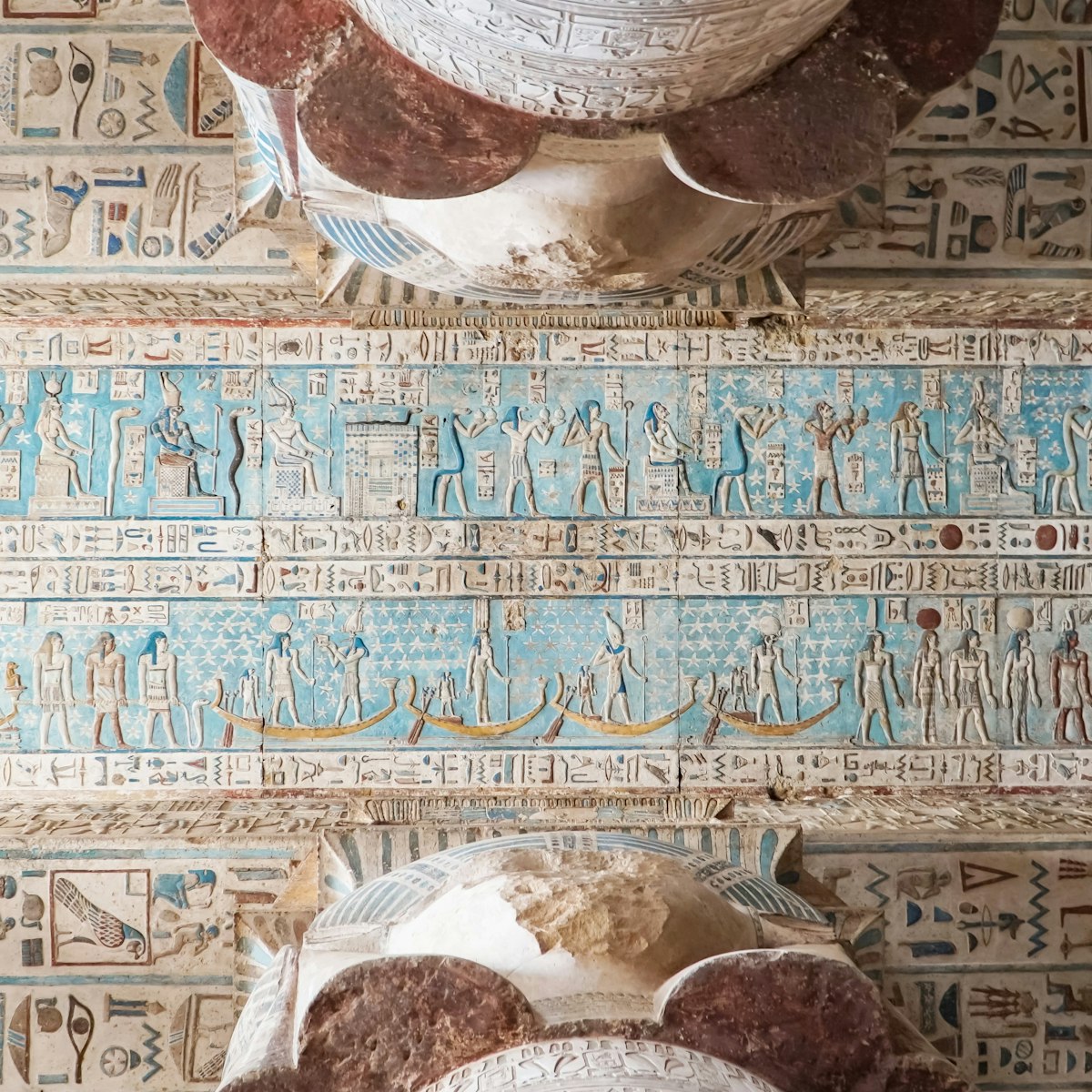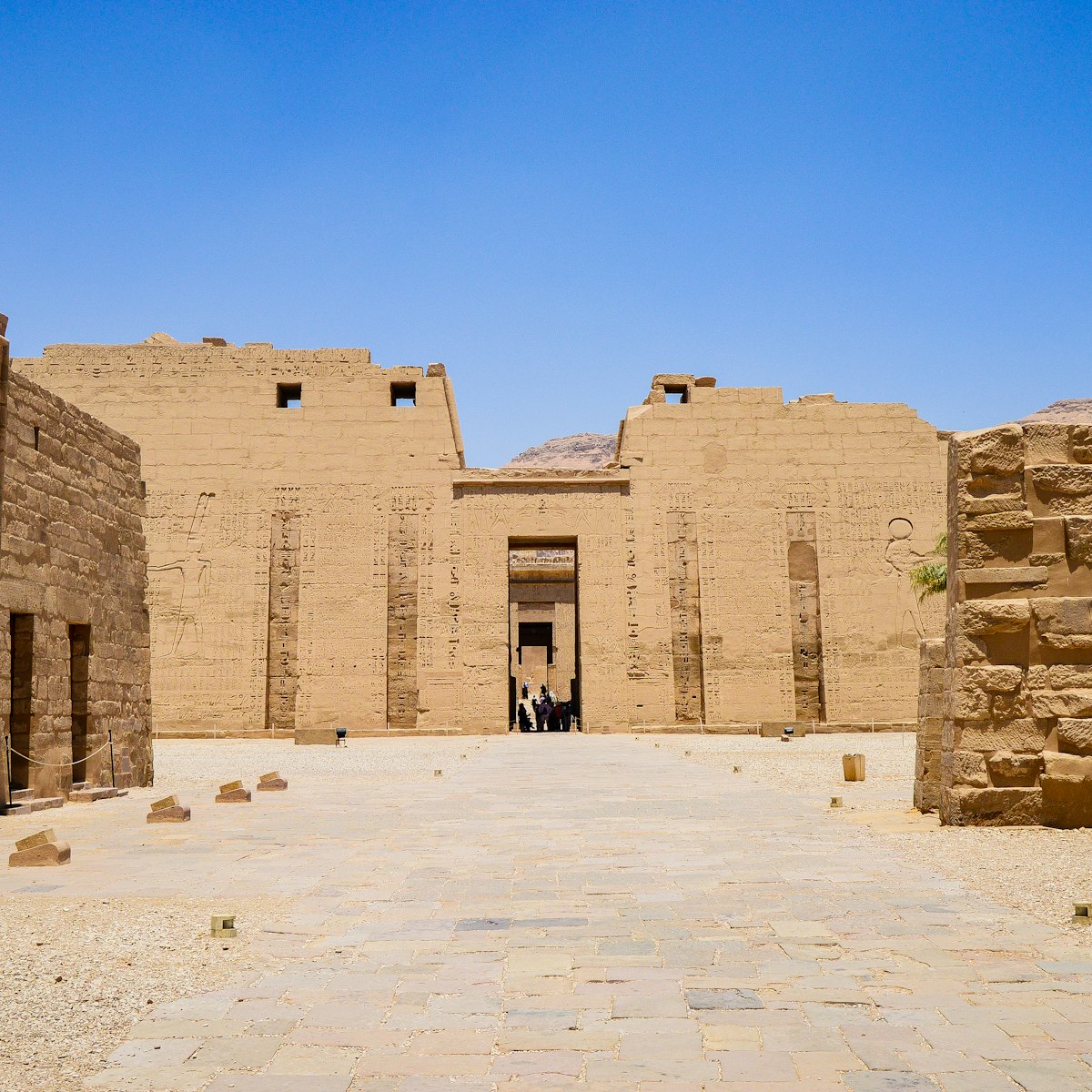Originally intended to be much larger, KV 2 was cut short at 89m on the early death of the pharaoh (1147 BC) and a pillared hall was converted to be the burial chamber. The sarcophagus is in place with a magnificent goddess Nut filling the ceiling above it. Close to the entrance of the valley, this tomb was opened in antiquity and inhabited (there is Greek, Roman and Coptic graffiti), and used as a hotel by many 18th- and 19th-century visitors.
The paintings in the burial chamber have deteriorated, but there is a wonderful image of the goddess Nut, stretched across the blue ceiling, and it is the only tomb to contain the text of the Book of Nut, with a description of the path taken by the sun every day. The red-granite sarcophagus, though empty, is one of the largest in the valley. The discovery of an ancient plan of the tomb on papyrus (now in the Turin Museum) shows the sarcophagus was originally enclosed by four large shrines similar to those in Tutankhamun’s tomb. The mummy of Ramses IV was later reburied in the tomb of Amenhotep II (KV 35), and is now in the Egyptian Museum in Cairo.







